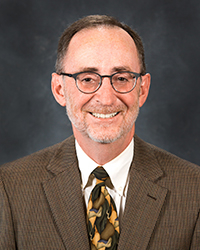
David O. Warner, MD
Smoking and vaping come with a long list of warnings. Among them, the not-so-secret increased risk of heart disease and lung cancer. But it’s the surgical risks that should concern anesthesiologists, who are obligated to encourage patients to quit smoking or vaping before surgery.
“Smoking increases the risk for cardiac, pulmonary, and wound-related complications (for surgical patients),” said David O. Warner, MD, Professor of Anesthesiology at the Mayo Clinic College of Medicine in Rochester. “We don’t know as much about how vaping might affect outcomes, but some animal studies suggest that vaping may also be associated with wound-related complications like wound infections.”
Dr. Warner will outline how vaping and smoking affect the perioperative care of patients, emphasizing practical steps that anesthesiologists can take to help their patients quit, during today’s session “Vapers and Smokers: What to Look for and How to Help Them.”
Anesthesiologists should apply an “Ask, Advise, Refer” method to encourage patients to stop smoking and vaping prior to surgery, Dr. Warner said. They should ask patients about tobacco use (begin a conversation), advise them to quit smoking (for as long as possible before and after surgery), and refer them to treatment services, such as a quitline (1-800-QUIT NOW).
“It only takes a minute and can make a difference,” he said.
Vapers and Smokers: What to Look for and How to Help Them
2-3 p.m. CT
Friday
That difference can manifest itself in reducing surgical risk for patients even if they’ve only just recently quit smoking or vaping.
“Abstinence from smoking reduces the rate of smoking-related complications and improves patient outcome,” Dr. Warner said. “Although the longer duration of abstinence the better, evidence that even brief periods of abstinence, such as just not smoking the morning of surgery, may be beneficial.”
One of the resources Dr. Warner recommends for anesthesiologists is the website quitforsurgery.com, which offers tools and strategies that they can use when talking to patients about quitting, including statistics and a video of a sample interventional conversation between a doctor and patient.
The website is also a good source for patients who are ready to begin their journey to quit smoking or vaping. It includes information on the benefits of quitting, facts about smoking and surgery, and even tips on how to “quit for a bit” if they want to only quit smoking for a limited period around their surgical date.
Anesthesiologists who do help their patents quit smoking or vaping are eligible for reimbursement and can bill for these services, said Dr. Warner. They also can receive credit for fulfilling quality measures when they use the Anesthesiology Smoking Abstinence Merit-based Incentive Payment System (MIPS).
Return to Index